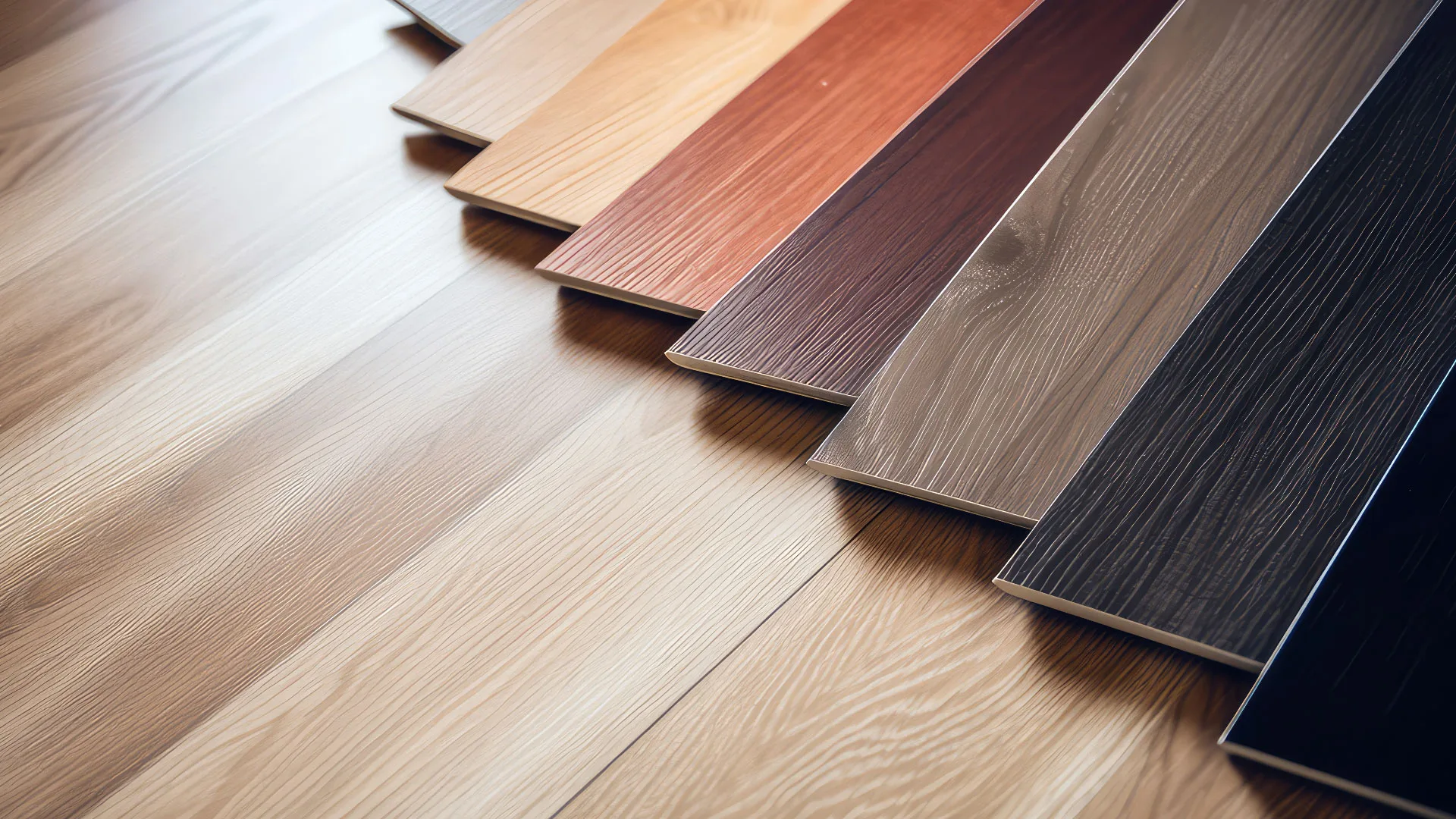Choosing the right flooring for your home involves considering various factors such as durability, aesthetics, budget, and maintenance requirements. Among the plethora of options available, vinyl plank and laminate flooring have gained significant popularity due to their affordability, versatility, and ease of installation. However, deciding between vinyl plank and laminate flooring can be challenging, as both offer unique advantages and disadvantages. In this comprehensive guide, we will explore the key to choosing between vinyl plank and laminate flooring, helping you make an informed decision that suits your needs and preferences.
Understanding Vinyl Plank Flooring:
Vinyl plank flooring is a synthetic flooring material made primarily from polyvinyl chloride (PVC) resins and additives. It is designed to mimic the look and feel of natural hardwood flooring, featuring realistic wood grain patterns and textures. Vinyl plank flooring typically consists of multiple layers, including a wear layer, decorative layer, core layer, and backing layer.
The wear layer is a transparent, protective coating that resists scratches, stains, and UV fading, ensuring the longevity of the flooring. The decorative layer is printed with high-definition images of wood grain patterns, providing the flooring with a realistic appearance. The core layer is made of PVC material, providing stability and water resistance, while the backing layer provides additional support and sound insulation.
Advantages of Vinyl Plank Flooring:
Vinyl plank flooring offers several advantages that make it a popular choice for homeowners:
a. Durability: Vinyl plank flooring is highly durable and resistant to scratches, stains, and moisture, making it suitable for high-traffic areas such as kitchens, bathrooms, and entryways.
b. Water Resistance: Unlike hardwood flooring, vinyl plank flooring is waterproof, making it ideal for areas prone to moisture and spills. It can withstand moisture without warping, swelling, or cupping, making it suitable for basements and bathrooms.
c. Easy Maintenance: Vinyl plank flooring is easy to clean and maintain, requiring only regular sweeping and occasional mopping with a mild detergent solution. It does not require refinishing or resealing like hardwood flooring.
d. Affordability: Vinyl plank flooring is often more affordable than hardwood flooring and other types of flooring materials, making it a budget-friendly option for homeowners.
e. Easy Installation: Vinyl plank flooring is typically sold in interlocking planks or adhesive-backed tiles, allowing for easy installation without the need for specialized tools or skills.
Understanding Laminate Flooring:
Laminate flooring is a synthetic flooring material composed of multiple layers, including a wear layer, decorative layer, core layer, and backing layer. The wear layer is a clear, protective coating that resists scratches, stains, and fading, while the decorative layer is printed with high-definition images of wood, tile, or stone patterns.
The core layer is made of high-density fiberboard (HDF) or medium-density fiberboard (MDF), providing stability and impact resistance. The backing layer provides additional support and moisture resistance, helping prevent warping and swelling.
Advantages of Laminate Flooring:
Laminate flooring offers several advantages that make it a popular choice for homeowners:
a. Durability: Laminate flooring is highly durable and resistant to scratches, stains, and fading, making it suitable for high-traffic areas such as living rooms, dining rooms, and hallways.
b. Water Resistance: While not waterproof like vinyl plank flooring, laminate flooring is water-resistant and can withstand occasional spills and moisture when properly installed and maintained.
c. Wide Range of Styles: Laminate flooring is available in a wide range of styles, colors, and patterns, including wood, tile, and stone designs, allowing for versatile design options to suit any decor style.
d. Affordability: Laminate flooring is often more affordable than hardwood flooring and other types of flooring materials, making it a cost-effective option for homeowners on a budget.
e. Easy Installation: Laminate flooring is typically sold in interlocking planks or glue-down tiles, allowing for easy installation without the need for specialized tools or skills.
Key Differences Between Vinyl Plank and Laminate Flooring:
While vinyl plank and laminate flooring share some similarities, there are key differences between the two:
a. Material Composition: Vinyl plank flooring is made primarily from PVC resins, while laminate flooring is made from HDF or MDF. This difference in material composition gives vinyl plank flooring better moisture resistance and dimensional stability.
b. Water Resistance: Vinyl plank flooring is waterproof, while laminate flooring is water-resistant. Vinyl plank flooring can withstand moisture without warping or swelling, making it suitable for areas prone to spills and moisture.
c. Appearance and Texture: Vinyl plank flooring features realistic wood grain patterns and textures, while laminate flooring offers a wider range of styles, including wood, tile, and stone designs.
d. Installation: Both vinyl plank and laminate flooring are available in interlocking planks or tiles, allowing for easy installation. However, vinyl plank flooring is generally easier to install in areas with irregular shapes or subfloor imperfections due to its flexibility and thickness.
e. Maintenance: Vinyl plank flooring is easier to clean and maintain than laminate flooring, as it does not require special cleaning products or treatments. Laminate flooring may require occasional resealing or refinishing to maintain its appearance and durability.
Choosing the Right Flooring for Your Needs:
When deciding between vinyl plank and laminate flooring, consider the following factors:
a. Location: Determine where the flooring will be installed and assess the moisture levels and traffic patterns in that area. If you need a waterproof flooring solution for areas prone to spills and moisture, such as kitchens, bathrooms, and basements, vinyl plank flooring may be the better option. However, if you’re installing flooring in a dry area with minimal moisture exposure, such as living rooms or bedrooms, laminate flooring may suffice.
b. Aesthetic Preferences: Consider your design preferences and the overall aesthetic of your home. Both vinyl plank and laminate flooring offer a wide range of styles, colors, and patterns to suit any decor style. Choose the option that best complements your existing furnishings and design elements.
c. Budget: Determine your budget for flooring materials and installation. While both vinyl plank and laminate flooring are generally more affordable than hardwood flooring, prices can vary depending on the quality, brand, and style. Consider the long-term investment value of each option, taking into account factors such as durability, maintenance, and longevity.
d. Installation: Assess your DIY skills and the complexity of the installation process. Both vinyl plank and laminate flooring can be installed as a floating floor system, making them suitable for DIY installation. However, vinyl plank flooring may be easier to install in areas with irregular shapes or subfloor imperfections due to its flexibility and thickness.
e. Maintenance: Consider the maintenance requirements of each flooring option and choose the one that best fits your lifestyle and maintenance preferences. While both vinyl plank and laminate flooring are relatively low-maintenance compared to hardwood flooring, vinyl plank flooring is generally easier to clean and maintain due to its waterproof nature.
Conclusion:
Choosing between vinyl plank and laminate flooring requires careful consideration of various factors, including durability, water resistance, aesthetics, budget, and maintenance requirements. While both options offer unique advantages and disadvantages, selecting the right flooring for your needs ultimately depends on your specific preferences and circumstances. Whether you prioritize waterproof performance, affordability, or design versatility, there is a vinyl plank or laminate flooring option that can meet your requirements and enhance the beauty and functionality of your home for years to come.


